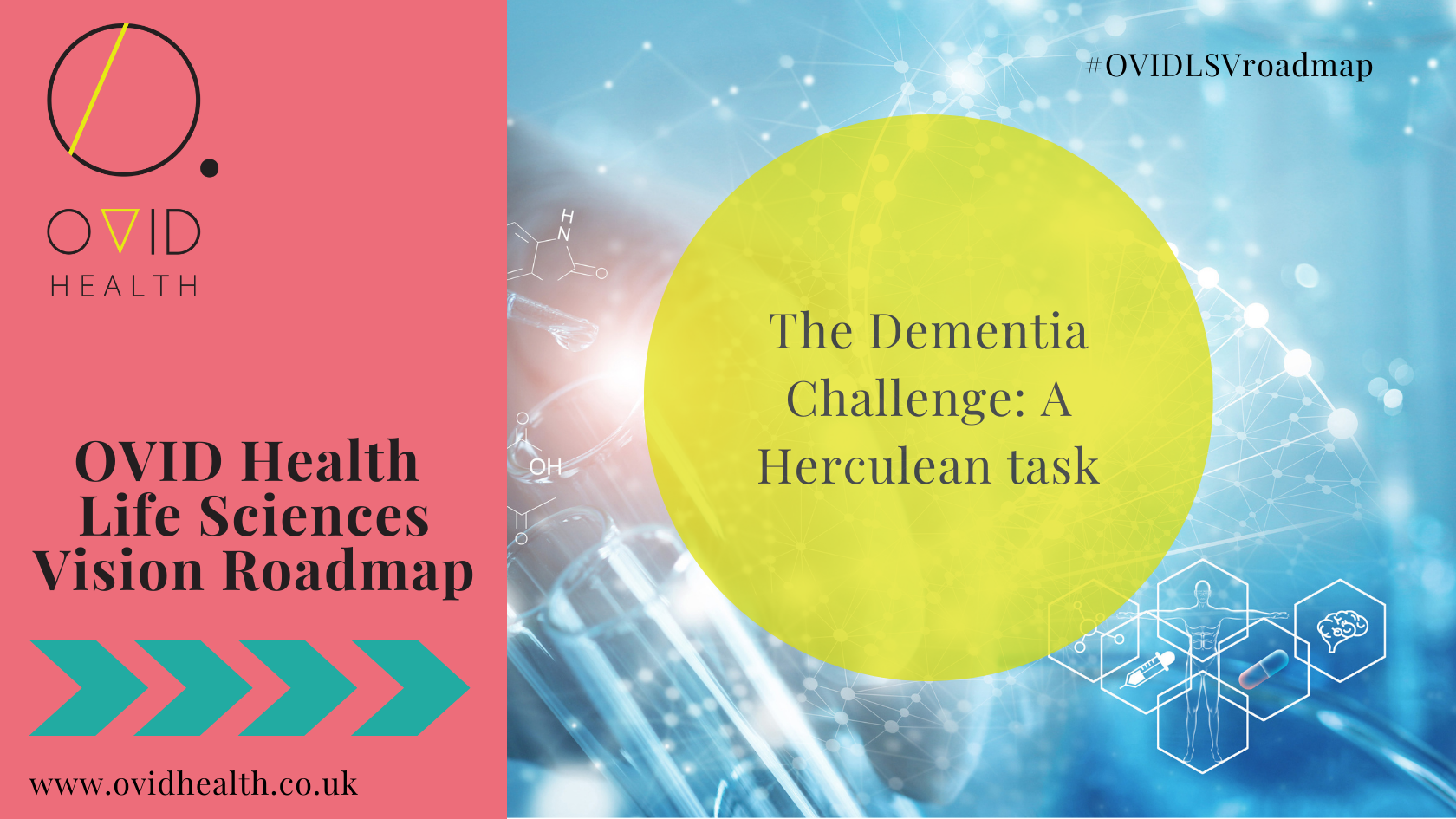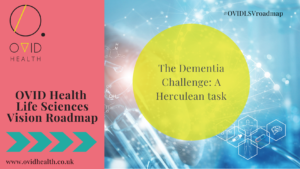
14 Jul The Dementia Challenge: A Herculean task

July 14th was the timetabled release date for the Life Sciences Vision Roadmap – the delivery plan was due to set out funded activity for this spending review cycle to deliver on the Life Sciences Vision’s “great healthcare challenges”. Political circumstances have shelved the policy document but not the challenges it seeks to address. OVID Health Partner, Roudie Shafie, shares her analysis of what the Roadmap needed to contain on dementia.
Seeking the Golden Apples
Dementia research has rightly had attention from successive Governments. From David Cameron’s G8 Dementia Challenge to this Government’s Dementia Strategy and of course the dementia healthcare challenge in last year’s Life Sciences Vision.
The scale of the challenge means that it is likely that it will also feature in the next iteration of a new Government’s health and research policy. By 2025, 1 million people in the UK are expected to have dementia, a figure expected to rise to 1.6 million by 2040. With this in mind, consecutive Conservative Governments have endeavoured to make the UK a world leader in dementia research, most notably with unprecedented investment in establishing a world leading Dementia Research Institute.
Doubling down on this investment to translate the advances in basic science from bench to bedside is the ambition of the Vision. How could the Roadmap demonstrate that step change in getting to new treatments, diagnostics and trials and regulatory approval – let alone market access?
The three headed dog
The UK has a genuinely rich dementia research ecosystem. OVID is proud to have worked with the UK Dementia Research Institute on race to cures highlighting the amazing advances made in dementia research in a short time. Their legacy is intertwined with that of the Dementia Discovery Fund and the Dementias Platform UK; as well as OVID’s work with the Alzheimer’s Research UK call for a Dementia Medicines Taskforce to speed up the development and roll-out of life-changing treatments.
But dementia does not exist in a vacuum – the NHS backlog, the social care crisis, the cost of living crisis and frankly even Brexit are all impeding the scale of progress. The ambition on diagnosis is a perfect example of where investment in science is yielding great advances in biomarkers. But without a healthcare system which enables trained GPs to see patients in a timely manner and a treatment pathway for patients to be referred to, the real life impact will be felt by too few patients. Beyond research we need to start the policy conversation now about how the health system changes and adapts to find and treat people with neurodegeneration now, but especially in the future.
Rerouting the river to clear the stables
But back to translating research, how does the UK bring together industry, academia and clinicians to boost translation science in dementia? The lessons from the successful COVID-19 Vaccines Taskforce (a legend retold in the Life Sciences Vision) is principally that if you build it they will come. What the Roadmap needed to demonstrate was a clear regulatory pathway for new technologies in dementia and a programme of work to evolve the market access routes and health system infrastructure for potential new treatments. The Vaccines Taskforce was after all first and foremost a procurement exercise – pick winners, procure to generate market investment, reroute the health system to deliver the vaccines.
As for translation, there are now more companies than ever involved in neurodegeneration clinical trials. The UK has fantastic industry-academia collaboration infrastructure in the Dementia Research Institute, where we can “plug and play” new initiatives in data science and social care research. Surely building on what we have is the quickest way to accelerate translation.
While the ancient gods punishingly added to Hercules’ challenges, perhaps in modern times we should stop creating new initiatives and institutes, and coalesce behind the ones we have already with a level of funding that will make a step change.
To find out more about OVID’s take on the Life Sciences Vision healthcare challenges and how to deliver them, check out our series here.